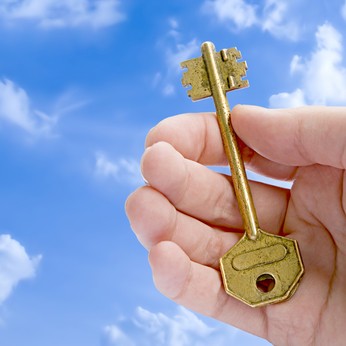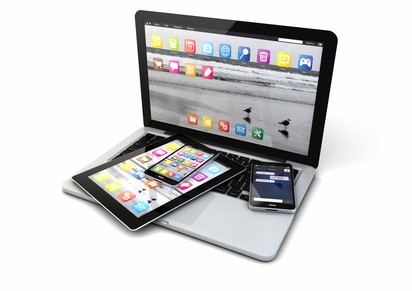XP has been the favorite Windows operating system for years. Some people have used nothing else, so this is what they know. Like most other Windows systems it got better with age, with the possible exception of Millenium or ME, for which no one had a fondness.
Since the release of XP we have seen Vista, Windows 7, Windows 8.0, and 8.1.
Support will end for XP on April 8, 2014, after a long and successful life. Read about it here
So what does that mean for home users? It means that over time your XP computer will become less secure, since vulnerabilities will not be addressed.
Think of it this way.
If you were in a subdivision with a lot of houses, and they found out that there was a key that would open the locks on most houses, what would they do? Notify you that you need to change  your locks and get new keys.
your locks and get new keys.
In the meantime, criminals would no doubt run around looking for locks that hadn’t been changed yet, and try to get in those houses. So updating your locks quickly would be very important. If you didn’t change the lock you would continue to be at risk.
With end of support for XP, there will be no more updates. This means every time there is a new hole discovered in the system, it will not be fixed and the hackers will have another opportunity to get into your computer. With the end of support from Microsoft, most vendors will also stop updating as well, and eventually XP will be mothballed along with previous OS.
Goodbye XP. What now?
If you say “Goodbye XP”, then what?
There are really only two choices.
1. Upgrade to Windows 7 or 8.1
2. Buy a new computer.
What about the upgrade? Upgrading means that your equipment must meet the minimum requirements for Window 7 or 8.1. You can check your computer against these specs.
If you want to run Windows 7 on your PC, here’s what it takes:
-
1 gigahertz (GHz) or faster 32-bit (x86) or 64-bit(x64) processor
- 1 gigabyte (GB) RAM (32-bit) or 2 GB RAM (64-bit)
- 16 GB available hard disk space (32-bit) or 20 GB (64-bit)
- DirectX 9 graphics device with WDDM 1.0 or higher driver
These are the minimum requirements. Your computer may not perform as you wish if it only has the minimum specs. You machine may still bog down if too many apps are open at once. Drivers may not be available for some of the older hardware.
Still not sure?
You can run the Windows 7 Upgrade Advisor. Find it here.
Follow the instructions on plugging in all of your devices. If some are older, like a printer, there may not be up to date drivers for it to operate on Windows 7.
If you find that you can upgrade, be sure to note the exact upgrade available, especially whether you can use 64-bit (preferred) or can only use 32-bit.
Next you will need to locate Windows 7 for purchase, from a retail vendor.
Here are a few choices: http://www.tigerdirect.ca http://www.amazon.com
Windows 8.1 requirements are similar to those for Windows 7:
Windows 8.1
- If you want to run Windows 8.1 on your PC, here’s what it takes:
- Processor: 1 gigahertz (GHz) or faster with support for PAE, NX, and SSE2
- RAM: 1 gigabyte (GB) (32-bit) or 2 GB (64-bit)
- Hard disk space: 16 GB (32-bit) or 20 GB (64-bit)
- Graphics card: Microsoft DirectX 9 graphics device with WDDM driver
- Some extra features have added requirements to use. Check it here.
An upgrade advisor is available for Windows 8.1. Get it here.

You can purchase Windows 8.1 directly from Microsoft or from many different retailers. Check around for prices and availability.
After checking your equipment you may decide to buy a new computer instead.
Buy a new computer.
Why buy new?
1. Cost. The cost of a new computer must be weighed against the costs of upgrading. There is the operating system, about $100. What about memory (RAM)? If you need to add RAM to your machine, 2 GB is the minimum for 64-bit, but a little more will pay off in much improved performance. 4 GB is a good amount. Keep in mind that ram for older computers quite often costs more than for newer ones. Find out exactly what you need and how much it will cost before you spend any money. Check you RAM upgrade options with the crucial.com system scanner. This will analyze your system and recommend RAM upgrades and how much they cost.
Add up all the costs and see how this compares with buying new.
2.Features. Newer laptops have longer battery life, since the batteries themselves last longer, and the newer hardware is more energy efficient. Newer processors will usually run more efficiently, allowing you to do more faster. New computers come with a lot of extra software. Some of it is very useful, but some is excess baggage that can be removed.
3.Type of equipment. Depending on your needs, you may find that you would prefer to have a tablet.  That’s a whole different discussion, but think about what you use your computer for and whether you would like to have a tablet instead. Don’t just get caught up in the fad, but really think about what you want to do with it. Tablets are great as well. I use a tablet, smartphone, desktop, and laptop. They’re all great for different reasons, and I use them all.
That’s a whole different discussion, but think about what you use your computer for and whether you would like to have a tablet instead. Don’t just get caught up in the fad, but really think about what you want to do with it. Tablets are great as well. I use a tablet, smartphone, desktop, and laptop. They’re all great for different reasons, and I use them all.
What do you think? Are you upset by the demise of XP, or glad to have an excuse to upgrade?
Share your comments and questions.
